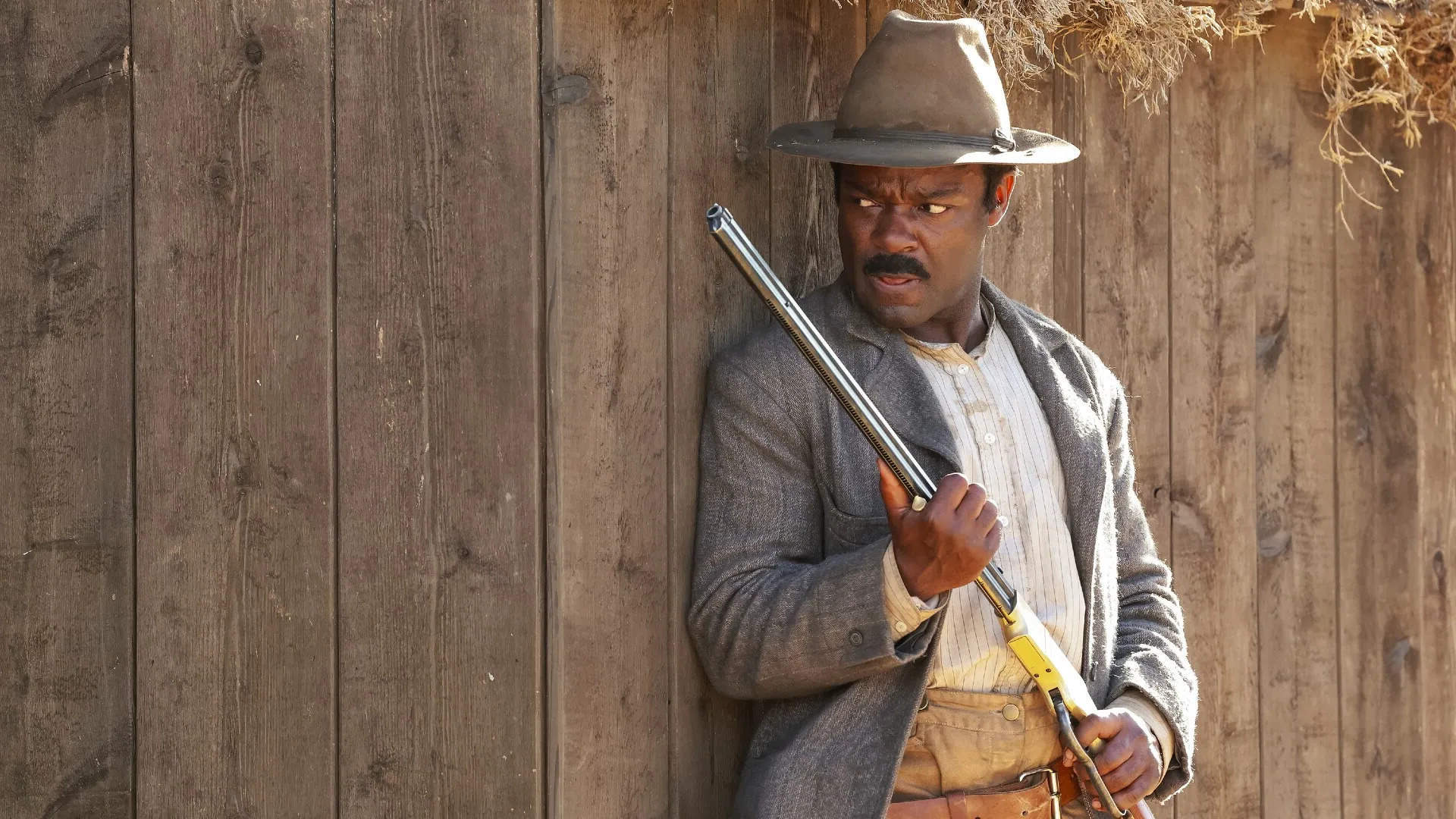
Who was Bass Reeves? Born into slavery in 1838, Bass Reeves escaped to become one of the most legendary lawmen of the American West. His life reads like an epic tale of bravery, justice, and resilience. Reeves served as a deputy U.S. Marshal for over 32 years, making more than 3,000 arrests in the Indian Territory. Known for his expert tracking skills, undercover operations, and proficiency with firearms, Reeves navigated a complex world filled with outlaws and Native American tribes. His legacy continues to inspire, with many believing he was the real-life inspiration for the Lone Ranger.
Key Takeaways:
- Bass Reeves, a former slave, became a legendary lawman in the American West. His bravery and skills as a deputy U.S. Marshal made him one of the most effective peace officers, with over 3,000 arrests during his career.
- Despite facing personal tragedies and challenges, Bass Reeves left a lasting impact on American history and popular culture. His legacy continues to inspire and captivate audiences through various media forms, including TV shows, films, novels, and statues.
Early Life and Escape
Bass Reeves's journey from slavery to legendary lawman is nothing short of remarkable. His early life set the stage for his future exploits.
-
Bass Reeves was born in July 1838 in Crawford County, Arkansas, into a family of slaves owned by Arkansas state legislator William Steele Reeves. His early years were marked by the harsh realities of slavery.
-
During the American Civil War, Reeves's owners fought for the Confederacy. At some point, Reeves escaped and fled to Indian Territory (present-day Oklahoma), where he learned American Indian languages and customs, as well as tracking and survival skills.
-
Reeves claimed to have fought in the Civil War for the South, participating in battles such as Pea Ridge, Missionary Ridge, and Chickamauga. However, his descendants later disputed these claims, suggesting they were part of his tall tales.
-
After the war, Reeves settled down in Van Buren, Arkansas, as a farmer. This quiet life was short-lived, as he soon found himself drawn back into the world of law enforcement and adventure.
Family and Personal Life
Despite his demanding career, Reeves managed to build a family and face personal challenges with resilience.
-
In 1864, Reeves married Nellie Jennie, with whom he had ten children. This large family was a significant support system for him, helping manage the farm and contributing to its profitability.
-
Reeves faced several personal tragedies during his lifetime. In one incident, he accidentally shot his cook, William Leach, leading to a court case (United States vs. Bass Reeves) for which he was acquitted.
-
His first wife, Nellie Jennie, died in 1896. Despite this loss, Reeves continued his work and later remarried.
-
Reeves had to arrest his own son, Benjamin "Bennie" Reeves, who was charged with murdering his wife, Castella Brown. Bennie was convicted and sentenced to life in prison but was released after eleven years and lived out the rest of his life as a model citizen.
Career as a Deputy U.S. Marshal
Reeves's career as a deputy U.S. Marshal is legendary, marked by bravery and an unwavering commitment to justice.
-
By 1875, Reeves was hired as a deputy U.S. Marshal by Judge Isaac C. Parker, who had recently taken over the Fort Smith federal court. At 37 years old, Reeves became one of the first African Americans to receive a commission as a deputy U.S. Marshal west of the Mississippi River.
-
Reeves served in the Indian Territory for over 32 years, covering an area of more than 75,000 square miles. This vast territory was notorious for its outlaws, horse thieves, cattle rustlers, gunslingers, bandits, bootleggers, swindlers, and murderers.
-
Reeves made more than 3,000 arrests during his career, earning him a reputation as one of the most effective peace officers in the American West.
-
One notable case involved tracking down notorious outlaw Jim Webb, whom he eventually killed in a shootout. This arrest showcased his tracking skills and his ability to apprehend even the most elusive outlaws.
Skills and Expertise
Reeves's skills and expertise were crucial to his success as a lawman.
-
Reeves was an expert with both pistol and rifle. He often used the Winchester Models 1873 and 1892, which were dual-purpose handgun/rifle cartridges. He also briefly used the Colt 45 peacemaker.
-
Reeves was known for his creative undercover operations. On one occasion, he tracked two outlaws to their mother’s house in the Red River Valley. Disguising himself as a tramp, he knocked on the door and asked for a place to rest. Once close enough, he burst into their room and threw them each in handcuffs.
-
Reeves's expertise in local languages and customs made him an invaluable asset in maintaining law and order in the Indian Territory.
Legacy and Recognition
Reeves's legacy continues to inspire and captivate audiences through various media forms.
-
Bass Reeves has been immortalized in popular media, including TV shows, films, novels, poems, and books. He was also inducted into the Texas Trail of Fame.
-
A bronze statue of Reeves was erected in Pendergraft Park in Fort Smith, Arkansas, and the Bass Reeves Memorial Bridge in Oklahoma was named after him.
-
Historian Art T. Burton has suggested that Bass Reeves is the closest person to resemble the Lone Ranger. Both worked with Native American partners and handed out souvenir silver dollars.
-
Reeves has been featured in several television series, including "Wild West Chronicles," "Gunslingers," and "Timeless." He was portrayed by Colman Domingo in "The Murder of Jesse James" and by Jaleel White in "Drunk History."
-
Reeves is a playable character in the board game "Western Legends" and features prominently in an episode of "How It's Made," where a Bass Reeves limited-edition collectors' figurine is shown in various stages of production.
Historical Significance
Reeves's contributions to American history are significant and enduring.
-
Reeves's status as one of the first African-American Deputy U.S. Marshals west of the Mississippi River makes him a significant figure in American history.
-
Reeves worked for 32 years as a deputy U.S. Marshal, making him the only deputy to begin with Judge Parker's court and work until Oklahoma statehood in 1907.
-
When Reeves began riding for Judge Parker, the jurisdiction covered more than 75,000 square miles. Deputies from Fort Smith rode west to Fort Reno, Fort Sill, and Anadarko, a round trip of over 800 miles.
-
Reeves arrested more than 3,000 men and women for violating federal laws in the Indian Territory. His arrest statistics are a testament to his effectiveness as a peace officer.
-
Reeves faced several personal life challenges, including the accidental shooting of his cook, William Leach, which led to a court case. He also had to arrest his own son, Benjamin "Bennie" Reeves, who was charged with murder.
-
In 1909, Reeves was forced to retire due to Bright’s Disease, a chronic kidney affliction that made it impossible for him to continue his duties as a deputy U.S. Marshal.
Influence on Popular Culture
Reeves's life and exploits have left a lasting impact on popular culture.
-
Bass Reeves has been immortalized in popular culture through various media forms. He has been featured in TV shows, films, novels, poems, and books.
-
Reeves was inducted into the Texas Trail of Fame, a testament to his enduring legacy in the American West.
-
A bronze statue of him was erected in Pendergraft Park in Fort Smith, Arkansas, and the Bass Reeves Memorial Bridge in Oklahoma was named after him.
-
Reeves’s descendants have also made significant contributions to society. His grand-nephew, Paul L. Brady, became the first black administrative law judge in 1972. Ryan Reaves, a professional hockey player from Winnipeg, is Bass’s great-great-great-grandson.
-
Reeves’s former owner, Col. George R. Reeves, contracted rabies and passed away in 1882. This event was seen as a fitting end to a horrible man, and it is likely that Bass himself was not too broken up by the news.
-
While Reeves was known to tell tall tales, some of his claims about his Civil War service have been disputed by his descendants. However, his exploits as a lawman are well-documented and widely acknowledged.
-
Before becoming a deputy U.S. Marshal, Reeves worked as a guide for government officials who traveled through the Indian Territory. His expertise in local languages and customs made him perfectly suited for this role.
-
In 1865, the Thirteenth Amendment abolished slavery, finally allowing Reeves to move around the country freely. He moved to Arkansas and became a small-time farmer, living a quiet life for ten years before being drawn back into law enforcement.
Bass Reeves: A Legacy of Bravery and Justice
Bass Reeves's life is a testament to resilience and courage. Born into slavery, he escaped to become one of the most respected lawmen in the American West. His 32-year career as a deputy U.S. Marshal saw him arrest over 3,000 outlaws, showcasing his unmatched skills in tracking and law enforcement. Reeves's ability to navigate the complexities of the Indian Territory, coupled with his expertise in firearms, made him a formidable figure. His legacy lives on through statues, memorials, and popular culture, inspiring future generations. Despite personal tragedies and health issues, Reeves's commitment to justice never wavered. His story, filled with bravery and determination, continues to captivate and inspire, ensuring that his name remains synonymous with the spirit of the American frontier. Bass Reeves truly embodies the essence of a legendary lawman.
Frequently Asked Questions
Was this page helpful?
Our commitment to delivering trustworthy and engaging content is at the heart of what we do. Each fact on our site is contributed by real users like you, bringing a wealth of diverse insights and information. To ensure the highest standards of accuracy and reliability, our dedicated editors meticulously review each submission. This process guarantees that the facts we share are not only fascinating but also credible. Trust in our commitment to quality and authenticity as you explore and learn with us.


